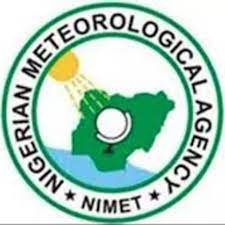The Nigerian Meteorological Agency (NiMet) and the Agro-Climatic Resilience in Semi-Arid Landscapes (ACReSAL) Project are collaborating to develop a customized Digital Precision Agricultural Extension (DPAE) platform aimed at enhancing climate-smart agriculture for smallholder farmers in Northern Nigeria.
At a strategic meeting held at NiMet’s headquarters in Abuja, Mukhtar Y. Tanko, the National Project Coordinator of ACReSAL, briefed Charles Anosike, Director General and CEO of NiMet, on the project’s objectives, emphasizing the critical role of climate data in supporting sustainable rain-fed agriculture.
Tanko explained that Sub-Component B2 of the ACReSAL Project focuses on helping farmers optimize agricultural practices through access to reliable climate information.
“Achieving climate-smart agriculture requires integrating weather data into farm management to boost productivity,” he said.
He added that the Federal Government, through ACReSAL, plans to establish a digital agricultural extension service that delivers real-time and predictive information tailored to individual farmers. This will include weather forecasts, input recommendations, market intelligence, and agricultural advisories designed to improve decision-making and resilience among smallholder farmers.
In his response, Anosike reaffirmed NiMet’s commitment to the initiative, noting that weather and climate data are indispensable tools in achieving precision agriculture.
“You can’t practice precision-smart agriculture without weather and climate information. We already have a productive relationship with ACReSAL and are fully committed to deepening this partnership,” Anosike said.
He further emphasized the importance of co-developing an interactive, user-friendly digital platform that farmers can easily navigate, underscoring NiMet’s role in designing the weather and climate data components of the DPAE.
The DPAE platform, once operational, is expected to connect key stakeholders across agricultural value chains, including farmers, public extension services, input suppliers, traders, processors, and mechanization providers. It aims to serve as a comprehensive hub for digital extension and advisory services, boosting agricultural output and resilience across the semi-arid regions of Nigeria.
The partnership represents a significant step in the Federal Government’s drive to leverage digital technology and climate data to support sustainable agriculture and improve livelihoods in vulnerable communities.















